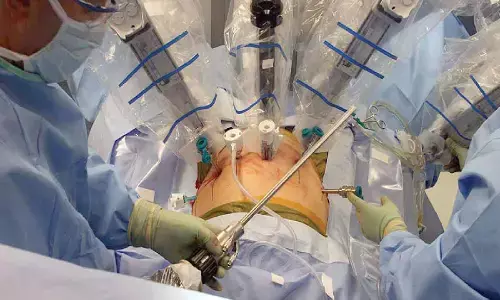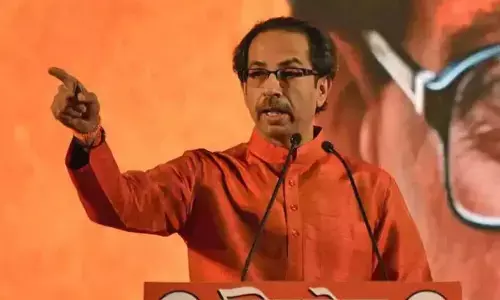Need-based courses are the need of the hour

Need-based courses are the need of the hour (image used for representational purpose only)
Competition is growing at a rapid pace. Finance, IT, Engineering, Medicine, Project Management, Agriculture, Technology, Teaching and all other fields are evolving.
Competition is growing at a rapid pace. Finance, IT, Engineering, Medicine, Project Management, Agriculture, Technology, Teaching and all other fields are evolving. So, in order to keep up, we also need to learn those things and to showcase our skill level. Thats where certifications come into the picture. Also, the subjects that are taught in the colleges also need to mature as per the industry needs as times have changed. Industry based courses and certifications are essential today, more than ever. Students used to hate some lectures and like some of them. This was because unnecessary subjects were part of the program, some still are. But mostly, this is curtailed to a great extent. The credit goes to the industry aligned courses and certifications which save the time of students by making their resume substantial and making them more employable.
Gone are the days when a regular degree with conventional subjects will get something. To get bright opportunities, students should have a strong portfolio. Getting a job is easy and hard both in today's world. Certification courses which help students hone the skills and certifications to prove what they know. It has been rightly said that just like all of our five fingers are different from each other, similarly, every human being is unique with his/her own set of thoughts, views, interests and calibers. Not everyone is born to be a doctor or engineer. Especially in today's world where there is extreme competition, there has arisen a need for some off-beat, creative career choices that the youngsters of today should be exposed to, so that those who do not get through the main league courses, can still make a good living for themselves.
Agriculture provides most of the world's food and fabrics. In India, Agriculture is one of the largest industries and a good source of employment. Agriculture is the science and art of cultivating plants and livestock. Agriculture was the key development in the rise of sedentary human civilisation, whereby farming of domesticated species created food surpluses that enabled people to live in cities.
Agriculture is the science and art of cultivating plants and livestock. The career in agriculture is an excellent source of the largest industries and jobs. At present, the students of the entire country are selecting the agricultural sector for their career prospects. After pursuing courses in the agricultural industry, they can apply for jobs in government and private organizations. Many job opportunities are available for agricultural technocrats. In agriculture, the student can achieve more education in agribusiness management, agriculture management, natural resources, and livestock production.
Institutes offering need based courses selects rural youth to become agriculture technology assistants. Youth are trained on agronomy, plant protection, markets , bank linkages and assistants have to work for three to six months working with 150-250 farmers before becoming Agri- Entrepreneurs. Agri Entrepreneurs provide services on crop advice, agriculture input sales, market linkages and credit facilitation. To link farmers to markets, they coordinate harvesting schedules to ensure availability of enough produce for either a trader to come or for transport to market.
Mechanisation is a crucial input for agricultural crop production and one that historically has been neglected in the context of developing countries. Factors that reduce the availability of farm power compromise the ability to cultivate sufficient land and have long been recognized as a source of poverty. Increasing the power supply to agriculture means that more tasks can be completed at the right time and greater areas can be farmed to produce greater quantities of crops while conserving natural resources. Applying new technologies that are environmentally friendly enables farmers to produce crops more efficiently by using less power.
Sustainable agricultural mechanisation can also contribute significantly to the development of value chains and food systems as it has the potential to render postharvest, processing and marketing activities and functions more efficient, effective and environmentally friendly. The level of mechanization should meet their needs effectively and efficiently. Women play an important role in many farming based communities, and in some countries, up to 80 percent of the total farm labour comes from women. This implies that power sources need to be adapted to such necessities from an ergonomic, social, cultural and economic point of view.
The reduction of drudgery is a key element of sustainable mechanization and contributes to reducing women's hard workload by taking into consideration technologies apt to their needs and improving their access to appropriate forms of farm power. The hands on training being offered by these institutes aims at promoting the judicious use of various agricultural inputs, the testing of machinery as per International test codes, on the other hand, contributes substantially in identifying trust worthy machinery. The training institutes are mandated with imparting the skilled training on many courses like tractor operator, harvesting machinery operator, power weeders, web based soil analyzers and gender based courses. Safety in farm machinery operation has always been a matter of great importance.
Sustainable mechanization can increase land productivity by facilitating timeliness and quality of cultivation and support opportunities that relieve the burden of labour shortages and enable households to withstand shocks better, decrease the environmental footprint of agriculture when combined with adequate conservation agriculture practices. Need based courses and hands on training will - reduce poverty and achieve food security while improving people's livelihoods and also to create employment for rural youth, increase farmer's income and foster local agricultural development.
(The authors are President, Goutham Buddha Development Society and Professor, SNIST, Hyderabad)
















